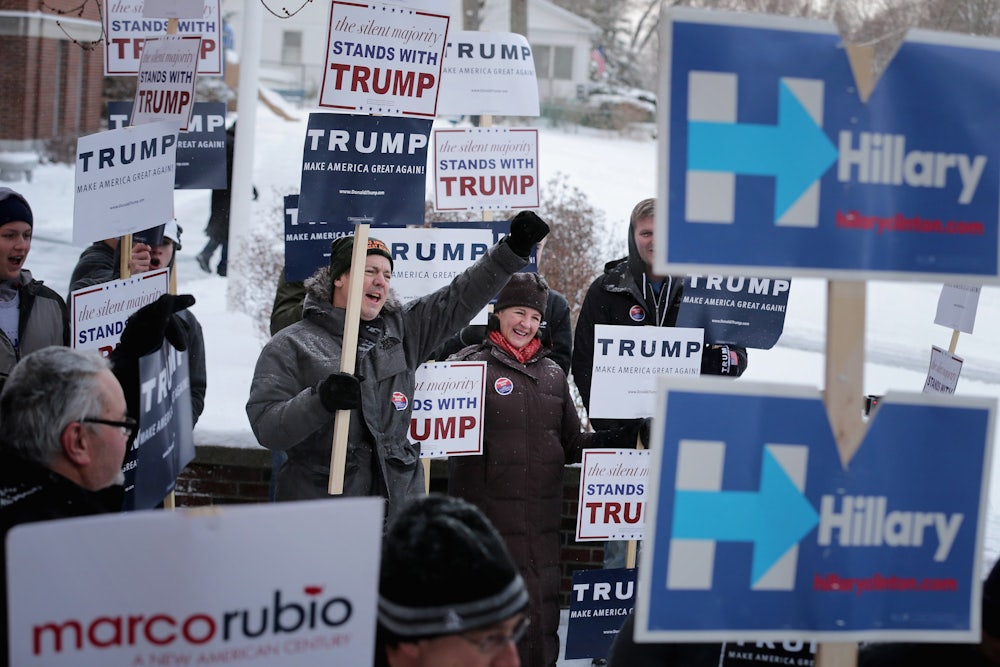About 40 percent of registered voters in New Hampshire do not affiliate with a party at the time of registering, fostering quadrennial storylines about the electoral impact of independents and undeclared voters who are eligible to vote in either primary. This year’s focus has been on a potential split between Bernie Sanders and Donald Trump, two “outsider” contenders who have enticed anti-establishment voters.
But as the Washington Post pointed out, there are fewer true independents than commonly believed.
When asked if they identify with a party, about a third of the “undeclared” registered voters say they are independent; the rest split about evenly between the major parties. So among registered voters, less than 15 percent are actually “independent,” and only about one-third to one-half of them vote in the primary.
Furthermore, no candidate has won the state without a plurality of their party’s voters since polls began tracking party affiliation, although independents and undeclared voters have helped push winning candidates over the finish line.
A unique aspect of this year’s race, though, is the large number of Republican candidates still vying for their party’s nomination. If lots of New Hampshire’s undeclareds and independents decide to vote in that primary, they could have a big impact on a race where candidates are divided by razor-thin margins.
